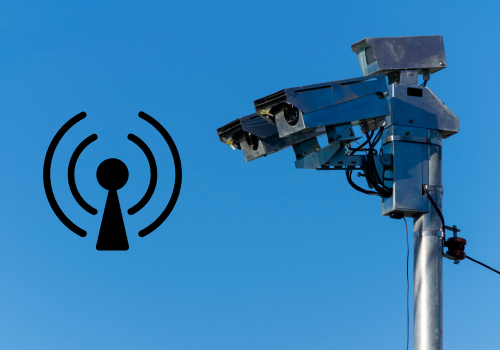Advertisements
Understanding the economic impact of inflation and deflation is essential to dealing with changes in everyday life. These two phenomena have a major influence on the population's purchasing power, investments and the economy as a whole. Therefore, it is important to be aware of the causes and consequences of each of them.
Inflation is characterized by a continuous increase in the prices of products and services, which reduces consumers' purchasing power. Deflation is the opposite, marked by a drop in prices and, consequently, an increase in purchasing power. Both situations can directly impact people's lives, influencing everything from the price of a loaf of bread at the bakery to the value of financial investments.
To deal with these changes in a more conscious and strategic way, it is essential to understand the mechanisms that govern inflation and deflation. In addition, it is important to look for alternatives to protect your money and ensure financial stability amid these economic fluctuations. In this article, we will explore these issues in more depth and present practical tips for dealing with price fluctuations and keeping your finances in order.
Economic Impact: Inflation and Deflation – What you need to know to deal with the changes in your daily life
What is inflation and deflation?
Inflation and deflation are economic phenomena that directly impact the population's purchasing power. Inflation occurs when there is a continuous increase in the prices of products and services, making money worth less. Deflation is the opposite, characterized by a generalized drop in prices, which can lead to a reduction in production and consumption.
Impact of inflation and deflation on everyday life
Inflation can affect many aspects of daily life, such as increasing the cost of living, reducing purchasing power and requiring frequent salary adjustments. On the other hand, deflation can cause an economic slowdown, leading to job cuts and investment.
Advertisements
- Increased cost of living;
- Reduction in purchasing power;
- Need for frequent salary adjustments;
- Economic slowdown;
- Job and investment cuts.
How to deal with changes caused by inflation and deflation
To deal with the changes caused by inflation and deflation, it is important to pay attention to economic indexes, such as the IPCA and the IGP-M, which measure price variations. In addition, it is essential to maintain a solid financial plan, looking for ways to save and invest consciously.
In times of inflation, it is advisable to seek investment alternatives that can protect your purchasing power, such as fixed income. In times of deflation, it is important to remain cautious and seek investment opportunities that can generate long-term returns.
Dealing with the changes caused by inflation and deflation requires planning, financial education and constant monitoring of economic trends. Being prepared for the impacts of these phenomena is essential to ensure financial stability in everyday life.

In a constantly changing economic scenario, it is essential to always be up to date and prepared to deal with the fluctuations caused by inflation and deflation. In addition to closely monitoring economic indices and maintaining solid financial planning, it is essential to seek specialized knowledge and guidance to make more assertive financial decisions. This way, it will be possible to face the challenges brought by these economic phenomena with greater security and peace of mind, ensuring financial stability in everyday life and taking advantage of investment opportunities that arise.
Dealing with the changes caused by inflation and deflation requires planning, attention to economic indicators and financial education. Inflation, characterized by a generalized increase in prices, reduces purchasing power, requiring strategies to protect assets. Investing in financial products linked to the IPCA, such as fixed income securities, is an efficient alternative to maintain the value of money. In addition, it is important to avoid long-term debts with high interest rates, which tend to increase in inflationary scenarios.
Advertisements
Deflation, marked by falling prices, can indicate an economic slowdown and requires caution. In this context, prioritize stable investments and evaluate opportunities to acquire depreciated assets, always with careful analysis. In both scenarios, diversifying investments and building an emergency reserve are essential to ensure stability.
Monitoring economic indexes, such as the IPCA and the Selic rate, helps you make more assertive financial decisions. Seeking specialized guidance is also recommended, as experts can suggest strategies that are appropriate to each individual's risk profile.
Staying informed, regularly reviewing financial planning and adapting to economic changes are essential attitudes to face the challenges of inflation and deflation, ensuring security and taking advantage of opportunities.
Conclusion
In short, inflation and deflation are economic phenomena that directly affect the purchasing power of the population, impacting everyone's daily lives. While inflation increases the prices of products and services, reducing the value of money, deflation causes a generalized drop in prices, which can lead to an economic slowdown.
To deal with these changes, it is essential to monitor economic indices, such as the IPCA and IGP-M, and maintain a solid financial plan. In periods of inflation, it is recommended to invest in alternatives that protect purchasing power, such as fixed income. In times of deflation, it is important to be cautious and seek long-term investment opportunities.
In short, being prepared for the impacts of inflation and deflation requires planning, financial education and monitoring of economic trends. This way, it is possible to ensure financial stability in your day-to-day life and deal more effectively with the changes caused by these economic phenomena. Always remember to stay informed and look for smart ways to deal with economic fluctuations.
Furthermore, it is important to emphasize that financial education plays a fundamental role in people’s ability to deal with economic fluctuations caused by inflation and deflation. By understanding basic economic concepts, such as inflation, deflation, economic indexes and investment methods, people can make more informed and strategic decisions regarding their finances. Therefore, seeking knowledge and expert guidance is essential to ensure financial stability and take advantage of growth opportunities even amid uncertain economic scenarios.




